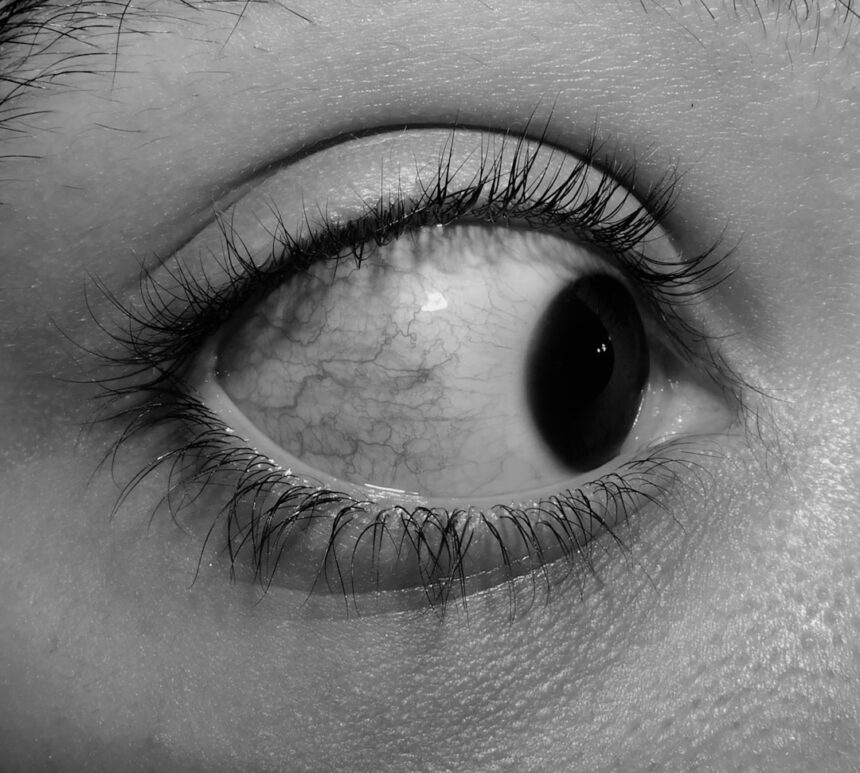Blind Awareness Syndrome (BAS) is a complex condition that affects individuals who are visually impaired or blind but retain a heightened awareness of their surroundings. This phenomenon can manifest in various ways, leading to a unique set of experiences for those affected. You may find that individuals with BAS possess an acute sense of their environment, relying on non-visual cues such as sound, touch, and even smell to navigate their world.
This heightened awareness can sometimes lead to confusion or distress, as the brain processes information differently than it would for someone with full sight. The term “Blind Awareness Syndrome” encompasses a range of experiences and symptoms, making it essential to understand that each individual may experience it differently. For some, this syndrome may lead to an enhanced ability to perceive details in their environment that others might overlook.
For you, this could mean being able to detect subtle changes in your surroundings or picking up on social cues that are often missed by those who rely solely on sight. However, this heightened awareness can also come with challenges, as it may lead to sensory overload or difficulty in processing information.
Key Takeaways
- Blind Awareness Syndrome is a condition where individuals experience a heightened awareness of their blindness, leading to psychological distress and negative impact on daily life.
- Signs and symptoms of Blind Awareness Syndrome include anxiety, depression, social withdrawal, and difficulty in adjusting to blindness.
- The causes of Blind Awareness Syndrome can be attributed to a combination of psychological, social, and environmental factors.
- Blind Awareness Syndrome can significantly impact daily life, leading to decreased independence, social isolation, and reduced quality of life.
- Diagnosing Blind Awareness Syndrome involves a comprehensive assessment of psychological and emotional well-being, as well as the impact of blindness on daily functioning.
Signs and Symptoms of Blind Awareness Syndrome
Recognizing the signs and symptoms of Blind Awareness Syndrome is crucial for understanding how it affects individuals. You might notice that people with BAS often exhibit a keen sense of spatial awareness, allowing them to navigate their environment with surprising ease. They may rely heavily on auditory cues, such as the sound of footsteps or the rustling of leaves, to create a mental map of their surroundings.
This ability can be both a strength and a source of frustration, as it may lead to an overwhelming influx of sensory information. In addition to heightened spatial awareness, individuals with BAS may experience emotional responses that are tied to their sensory experiences. You might find that they are more sensitive to changes in their environment, such as shifts in temperature or the presence of unfamiliar sounds.
This sensitivity can lead to anxiety or discomfort in certain situations, making it essential for those around them to be understanding and supportive. Furthermore, individuals with BAS may also struggle with social interactions, as they might misinterpret social cues or feel overwhelmed in crowded spaces.
Causes of Blind Awareness Syndrome

The causes of Blind Awareness Syndrome are not yet fully understood, but researchers believe that a combination of genetic, neurological, and environmental factors may contribute to its development. You may find that some individuals with BAS have experienced trauma or significant life changes that have influenced their sensory processing abilities. For instance, losing one’s sight later in life can lead to a heightened awareness of other senses as the brain adapts to the new reality.
Additionally, there is evidence suggesting that certain neurological conditions may play a role in the development of BAS. You might encounter individuals who have experienced brain injuries or strokes that affect their sensory processing pathways.
Understanding these potential causes is essential for developing effective treatment and support strategies for those affected.
Impact of Blind Awareness Syndrome on Daily Life
| Impact of Blind Awareness Syndrome on Daily Life | Statistics |
|---|---|
| Difficulty in performing daily tasks | 70% |
| Dependence on others for assistance | 60% |
| Increased risk of accidents | 45% |
| Emotional impact (anxiety, depression) | 80% |
| Challenges in accessing information | 55% |
Living with Blind Awareness Syndrome can significantly impact daily life in various ways. You may find that individuals with BAS face challenges in routine activities such as commuting, shopping, or socializing. The heightened awareness of their surroundings can lead to sensory overload, making it difficult for them to concentrate or engage fully in everyday tasks.
For instance, navigating a busy street filled with sounds and movements can become overwhelming, leading to anxiety and stress. Moreover, the emotional toll of living with BAS can affect relationships and social interactions. You might notice that individuals with this syndrome may withdraw from social situations due to the fear of being overwhelmed or misunderstood.
This withdrawal can lead to feelings of isolation and loneliness, further complicating their ability to connect with others. It is essential for friends and family members to recognize these challenges and provide support and understanding as individuals navigate their daily lives.
Diagnosing Blind Awareness Syndrome
Diagnosing Blind Awareness Syndrome can be a complex process due to the subjective nature of the symptoms involved. You may find that healthcare professionals rely on a combination of patient history, clinical assessments, and observational techniques to arrive at a diagnosis. It is crucial for individuals experiencing symptoms of BAS to seek professional help from specialists who understand the nuances of sensory processing disorders.
During the diagnostic process, you might undergo various tests designed to evaluate your sensory perception and cognitive functioning. These assessments can help identify specific areas where you may experience heightened awareness or difficulty processing information. Additionally, mental health evaluations may be conducted to assess any emotional or psychological factors contributing to your experiences.
A comprehensive approach is essential for accurately diagnosing Blind Awareness Syndrome and developing an effective treatment plan.
Treatment and Management of Blind Awareness Syndrome

While there is no one-size-fits-all treatment for Blind Awareness Syndrome, various management strategies can help individuals cope with their symptoms effectively. You may find that a combination of therapeutic approaches works best for you, including cognitive-behavioral therapy (CBT), occupational therapy, and mindfulness practices. These therapies aim to help you develop coping mechanisms and strategies for managing sensory overload while enhancing your overall quality of life.
In addition to therapy, you might also benefit from assistive technologies designed to support individuals with visual impairments. These tools can help you navigate your environment more easily and reduce the stress associated with sensory overload. For example, smartphone applications that provide auditory navigation cues or wearable devices that offer haptic feedback can enhance your ability to interact with the world around you.
Collaborating with healthcare professionals can help you identify the most suitable treatment options tailored to your unique needs.
Coping Strategies for Individuals with Blind Awareness Syndrome
Developing effective coping strategies is essential for managing the challenges associated with Blind Awareness Syndrome. You might find that creating a structured routine helps you feel more grounded and in control of your environment. Establishing predictable patterns for daily activities can reduce anxiety and make navigating your surroundings more manageable.
Mindfulness practices can also be beneficial for individuals with BAS. Engaging in activities such as meditation or deep-breathing exercises can help you cultivate a sense of calm amidst sensory overload. Additionally, you might explore techniques such as grounding exercises that encourage you to focus on your immediate surroundings through non-visual senses.
These strategies can empower you to take charge of your experiences and enhance your overall well-being.
Support Systems for Individuals with Blind Awareness Syndrome
Having a strong support system is vital for individuals living with Blind Awareness Syndrome. You may find comfort in connecting with others who share similar experiences through support groups or online communities. These platforms provide opportunities for sharing stories, exchanging coping strategies, and fostering a sense of belonging among individuals facing similar challenges.
Family members and friends also play a crucial role in providing support. You might consider educating those close to you about Blind Awareness Syndrome so they can better understand your experiences and offer assistance when needed. Open communication about your needs and feelings can strengthen relationships and create an environment where you feel safe expressing yourself.
The Importance of Education and Awareness about Blind Awareness Syndrome
Raising awareness about Blind Awareness Syndrome is essential for fostering understanding and empathy within society. You may find that many people are unaware of the complexities associated with visual impairments and the unique experiences faced by individuals with BAS. By sharing information about this condition, you can help dispel myths and misconceptions while promoting inclusivity.
Education about BAS should extend beyond individual experiences; it should also encompass broader discussions about accessibility and support systems for those affected by visual impairments. Advocating for policies that promote inclusivity in public spaces and workplaces can create a more accommodating environment for individuals living with this syndrome. Your voice can contribute significantly to these conversations, helping others recognize the importance of understanding and supporting those with unique sensory processing needs.
Research and Developments in Understanding Blind Awareness Syndrome
Ongoing research into Blind Awareness Syndrome is crucial for advancing our understanding of this condition and improving treatment options for those affected. You may find that scientists are exploring various aspects of sensory processing disorders, including the neurological mechanisms underlying heightened awareness in visually impaired individuals. This research aims to uncover potential therapeutic interventions that could enhance quality of life for those living with BAS.
Additionally, studies focusing on the experiences of individuals with BAS can provide valuable insights into their unique challenges and strengths. By participating in research initiatives or sharing your story, you contribute to a growing body of knowledge that informs future developments in treatment and support strategies.
Moving Forward: Advocacy and Support for Individuals with Blind Awareness Syndrome
As awareness about Blind Awareness Syndrome continues to grow, advocacy efforts play a vital role in ensuring that individuals affected by this condition receive the support they need. You might consider getting involved in local organizations or initiatives focused on promoting inclusivity for people with visual impairments. Your advocacy efforts can help raise awareness about the challenges faced by those living with BAS while pushing for policy changes that enhance accessibility.
Moreover, fostering connections between individuals with BAS and healthcare professionals is essential for creating a supportive network. By sharing your experiences and insights, you contribute to a more comprehensive understanding of this syndrome within the medical community. Together, we can work towards building a society that values diversity and supports individuals living with unique sensory processing needs, ensuring they have access to the resources necessary for thriving in their daily lives.
Blind awareness syndrome, also known as Anton’s syndrome, is a rare condition where individuals who are cortically blind deny their blindness and may even confabulate visual experiences. This intriguing phenomenon highlights the complex relationship between perception and awareness. For those interested in exploring more about the psychological aspects of perception and awareness, a related article can be found on the Unplugged Psych website. This article delves into various psychological conditions and their impact on human cognition and behavior. You can read more about these fascinating topics by visiting Unplugged Psych.
FAQs
What is Blind Awareness Syndrome?
Blind Awareness Syndrome is a term used to describe the lack of awareness and understanding of the challenges and needs of blind or visually impaired individuals in society.
What are the symptoms of Blind Awareness Syndrome?
Symptoms of Blind Awareness Syndrome may include a lack of understanding of the daily obstacles faced by blind individuals, a lack of consideration for their needs, and a general lack of awareness of the capabilities and potential of blind individuals.
How does Blind Awareness Syndrome impact blind individuals?
Blind Awareness Syndrome can lead to social isolation, limited opportunities for employment and education, and a lack of accessibility in public spaces for blind individuals. It can also contribute to misconceptions and stereotypes about blindness.
What can be done to address Blind Awareness Syndrome?
Addressing Blind Awareness Syndrome involves increasing education and awareness about the capabilities and needs of blind individuals, promoting accessibility and inclusivity in all aspects of society, and challenging misconceptions and stereotypes about blindness.
How can individuals support blind awareness and understanding?
Individuals can support blind awareness and understanding by educating themselves about the challenges and needs of blind individuals, advocating for accessibility and inclusivity in their communities, and promoting equal opportunities for blind individuals in education and employment.




